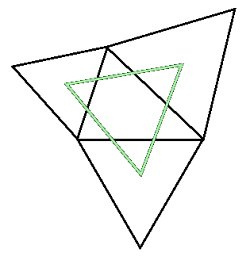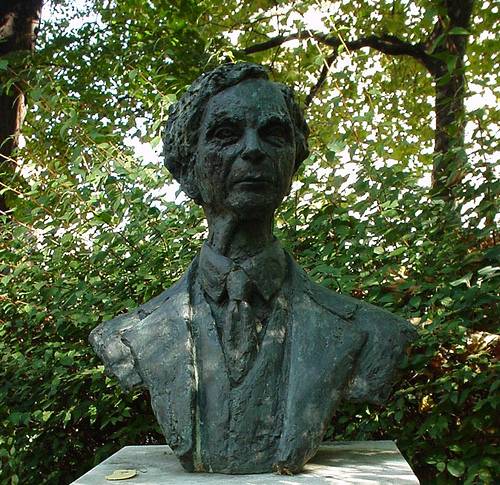
Construct equilateral triangles on the sides of any triangle, and their centers will form an equilateral triangle. (This also works if you construct the triangles inward rather than outward. This triangle has the same center as the outward triangle, and the difference in their areas is the area of the original triangle.)
This discovery is traditionally credited to Napoleon, but there’s no evidence supporting that contention. Indeed, this theorem is said to be one of the most frequently rediscovered results in mathematics.
See A Better Nature.



